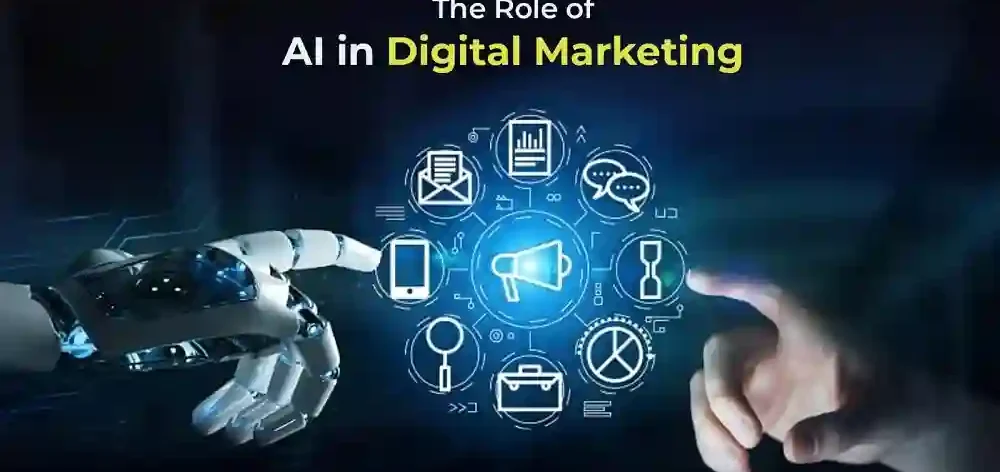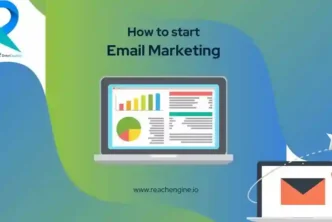Artificial intelligence (AI) has transformed many industries, and digital marketing is no exception. From predictive analytics to personalized customer experiences, AI is reshaping the way businesses connect with their audiences and achieve marketing goals. This article explores the multifaceted role of AI in digital marketing and how it is revolutionizing the industry.
What Is Artificial Intelligence?
Artificial intelligence refers to the simulation of human intelligence processes by machines. These processes include learning, reasoning, problem-solving, and decision-making. In the context of digital marketing, AI uses algorithms and data to improve campaign effectiveness, enhance customer experiences, and drive business growth.
The Growing Importance of AI in Digital Marketing
With the increasing reliance on data-driven strategies, AI has become an essential tool for marketers. Here are some reasons why AI is playing a critical role in digital marketing:
- Efficiency: AI automates repetitive tasks, such as email marketing and social media posting, saving time and resources.
- Personalization: AI enables marketers to deliver highly personalized content to customers based on their preferences and behavior.
- Data Analysis: AI processes vast amounts of data quickly, providing actionable insights that improve decision-making.
- Customer Insights: AI helps marketers understand their audience better, leading to more effective campaigns.
How AI Is Transforming Digital Marketing
AI’s applications in digital marketing are vast and varied. Below, we explore key areas where AI is making a significant impact.
1. Personalized Marketing
AI enables businesses to create personalized experiences for their customers by analyzing user data and behavior.
Dynamic Content Recommendations
AI algorithms analyze customer preferences, browsing history, and purchase patterns to recommend products or services. For example, platforms like Amazon and Netflix use AI to provide personalized recommendations, enhancing user engagement and satisfaction.
Tailored Email Campaigns
AI tools can segment email lists and personalize content based on user behavior, ensuring that recipients receive relevant and engaging messages. This improves open rates, click-through rates, and overall campaign performance.
2. Chatbots and Customer Service
AI-powered chatbots are revolutionizing customer service by providing instant responses and support.
24/7 Availability
Unlike human agents, AI chatbots are available around the clock, offering assistance to customers at any time. This improves customer satisfaction and reduces response times.
Natural Language Processing (NLP)
AI chatbots use NLP to understand and respond to customer queries in a conversational manner. This creates a more human-like interaction and enhances the user experience.
Cost Savings
By handling common queries and tasks, AI chatbots reduce the need for large customer service teams, saving businesses money.
3. Predictive Analytics
Predictive analytics uses AI to analyze historical data and forecast future trends, helping marketers make informed decisions.
Customer Behavior Prediction
AI can predict customer actions, such as purchases or churn, by analyzing patterns in data. This allows marketers to proactively address issues and optimize strategies.
Campaign Optimization
AI-powered tools assess campaign performance in real time and suggest adjustments to improve ROI. For instance, Google Ads uses AI to optimize ad placement and bidding strategies.
4. Content Creation and Optimization
AI tools are transforming content marketing by automating content creation and improving its effectiveness.
Automated Content Generation
AI-powered platforms like ChatGPT and Jasper can generate high-quality content for blogs, social media, and advertisements. This helps marketers save time and scale their content production.
SEO Optimization
AI tools like SEMrush and Ahrefs analyze search engine data to suggest keywords, content topics, and optimization strategies. This improves search engine rankings and increases organic traffic.
Visual Content Enhancement
AI tools like Canva and Adobe Sensei assist in creating eye-catching visuals by automating design elements and providing templates.
5. Programmatic Advertising
Programmatic advertising uses AI to automate the buying and placement of ads, ensuring they reach the right audience at the right time.
Real-Time Bidding
AI analyzes user data in real time to bid on ad placements, maximizing the efficiency of ad spend.
Audience Targeting
AI identifies and targets specific audience segments based on demographics, behavior, and interests, ensuring higher engagement rates.
Performance Monitoring
AI continuously monitors ad performance and adjusts strategies to improve ROI.
6. Voice Search Optimization
The rise of voice-activated devices like Amazon Echo and Google Home has made voice search a critical aspect of digital marketing.
Natural Language Processing
AI enables voice search engines to understand conversational language, helping businesses optimize content for voice queries.
Long-Tail Keywords
AI tools suggest long-tail keywords commonly used in voice searches, improving search engine visibility.
Local SEO
Voice searches often focus on local queries, and AI helps businesses optimize for “near me” searches to attract local customers.
7. Social Media Marketing
AI is enhancing social media marketing by automating processes and providing valuable insights.
Social Listening
AI tools analyze social media conversations to understand customer sentiment, identify trends, and track brand mentions.
Automated Posting
Platforms like Hootsuite and Buffer use AI to schedule and optimize social media posts for maximum engagement.
Audience Insights
AI analyzes social media data to provide insights into audience preferences, enabling marketers to create targeted content.
8. Customer Segmentation
AI improves customer segmentation by analyzing large datasets and identifying patterns.
Behavioral Segmentation
AI categorizes customers based on behavior, such as purchase history, website activity, or email engagement.
Real-Time Updates
AI dynamically updates customer segments as new data becomes available, ensuring campaigns remain relevant.
9. Enhanced User Experience
AI enhances user experiences across digital platforms, leading to higher customer satisfaction and retention.
Personalized Websites
AI tailors website content and design elements based on user preferences and behavior. For example, e-commerce sites can showcase products a user is most likely to purchase.
A/B Testing
AI automates A/B testing to determine which versions of a webpage or campaign perform best, optimizing user experiences.
Challenges of Using AI in Digital Marketing
Despite its benefits, implementing AI in digital marketing comes with challenges.
1. Data Privacy Concerns
AI relies on user data to function effectively, but this raises concerns about data privacy and security. Businesses must ensure compliance with regulations like GDPR and CCPA.
2. High Implementation Costs
Adopting AI technology can be expensive, especially for small businesses. However, the long-term benefits often justify the initial investment.
3. Complexity
AI tools require technical expertise to set up and manage. Businesses may need to invest in training or hire specialists to maximize AI’s potential.
The Future of AI in Digital Marketing
As AI technology continues to evolve, its role in digital marketing will only grow. Emerging trends include:
- Hyper-Personalization: AI will enable even more granular personalization, tailoring every aspect of the customer journey.
- AI-Generated Media: From deepfake videos to AI-driven virtual influencers, the possibilities for creative content are expanding.
- Advanced Voice AI: Voice assistants will play a larger role in marketing, making voice-optimized content essential.
- Augmented Reality (AR) and Virtual Reality (VR): AI will enhance AR/VR experiences, creating immersive marketing opportunities.
Conclusion
AI is transforming digital marketing by automating processes, providing insights, and enhancing customer experiences. From personalized content to predictive analytics, the applications of AI are vast and impactful. While challenges like data privacy and implementation costs remain, the benefits of AI far outweigh the drawbacks for businesses willing to invest in this technology.
By leveraging AI effectively, businesses can stay ahead of the competition, engage their audience, and drive sustainable growth in an increasingly digital world.
Read More latest Posts




